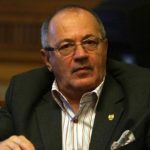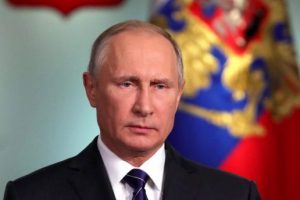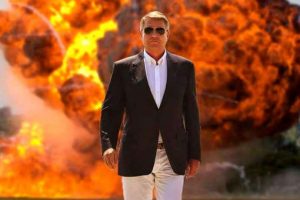 WASHINGTON — The chief of the International Monetary Fund said Friday that the organization should reorient itself to better detect systemic risks to the global economy and quickly step in with emergency loans when financial crises emerge.
WASHINGTON — The chief of the International Monetary Fund said Friday that the organization should reorient itself to better detect systemic risks to the global economy and quickly step in with emergency loans when financial crises emerge.
The I.M.F. leader, Dominique Strauss-Kahn, also floated the idea of creating a global reserve currency that could serve as an alternative to the dollar.
After a speech at the I.M.F. headquarters, Mr. Strauss-Kahn said in response to a question about the fiscal crisis in Greece that the fund would be “happy to help if asked” but that the European Union appeared able to resolve the crisis on its own.
“The Europeans, especially the members of the euro zone, want to try to deal with the problems themselves,” Mr. Strauss-Kahn, a former French finance minister, said. “I perfectly respect this.”
The I.M.F. has collaborated with the European Union and the European Central Bank in recent days, sending experts to Athens, but the Europeans have taken the lead on demanding that the Greek government impose cuts in public spending and other austerity measures.
In his speech, Mr. Strauss-Kahn called for a “renewed vision” for the I.M.F., which was part of the global financial architecture created in Bretton Woods, N.H., in 1944, but which faced grave questions about its relevance and survival by the time Mr. Strauss-Kahn took over in 2007.
The global financial crisis quickly turned things around. Coffers at the fund, which has 186 member nations, grew to $850 billion in the last year, an amount that Mr. Strauss-Kahn described as “sufficient to meet demand in the coming period.”
He called for the fund to improve its tools for financial surveillance and to “construct a global risk map” of nascent systemic risks. And while noting that the Federal Reserve and other central banks provided liquidity swaps during the worst of the crisis, he said that the I.M.F. should explore options like short-term credit lines for extending emergency lending in future crises.
He said the fund planned to triple its lending in low-income countries and to waive interest on loans to poor countries until 2012.
Mr. Strauss-Kahn also said it would be “intellectually healthy to explore” the creation of a new global reserve currency.
The governor of China’s central bank made a similar proposal in March 2009, arguing that “special drawing rights” — baskets of currencies issued by the I.M.F. and made up of the euro, yen, pound and dollar that have served as reserve assets — would be more stable and viable than the dollar. China’s huge holdings of dollar reserves in the form of Treasury securities have become a concern for officials on both sides of the Pacific.
Mr. Strauss-Kahn said that a new reserve currency could limit dependence on the policies and conditions of a single, though dominant, country.Few economists say they believe that the dollar’s status as the dominant foreign exchange reserve will change anytime soon. Mr. Strauss-Kahn said that while the fund might be called upon to provide a globally issued reserve asset some day, “that day has not yet come.”
Kenneth S. Rogoff, a Harvard professor and a former chief economist at the I.M.F., said the idea had been a “perennial big-think question” for decades but remained mostly hypothetical. “At the end of the day, you can’t have a currency without a fiscal policy underlying it,” he said in an interview.
Asked for a response to the remarks, the Treasury Department pointed to its most recent semiannual foreign exchange report, released in October. That report said that “as long as the United States maintains sound macroeconomic policies and deep, liquid, and open financial markets, the dollar will continue to be the major reserve currency.”
SEWELL CHAN
sursa: nytimes.com












Adauga comentariu